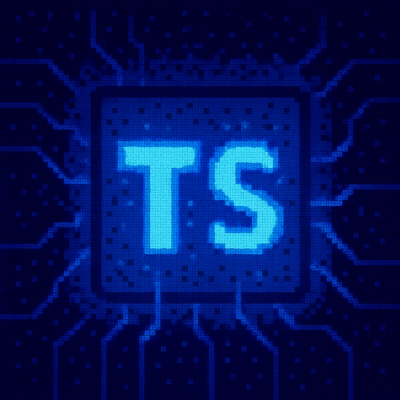
Security News
Critical Security Vulnerability in React Server Components
React disclosed a CVSS 10.0 RCE in React Server Components and is advising users to upgrade affected packages and frameworks to patched versions now.
@celo/blind-threshold-bls
Advanced tools
This library provides wasm bindings for producing and verifying blind threshold signatures
on BLS12-377. This is done by utilizing wasm-pack and
the underlying Rust library.
You can find details on the functionalities provided per function by inspecting the Typescript types file
Install by running: npm install @celo/blind-threshold-bls
Currently there are 2 examples available. You can run them and inspect the comments in the files by executing:
$ node examples/blind.js
$ node examples/tblind.js
// Simple Example of blinding, signing, unblinding and verifying.
// Import the library
const threshold = require("@celo/blind_threshold_bls")
const crypto = require('crypto')
// Get a message and a secret for the user
const msg = Buffer.from("hello world")
const user_seed = crypto.randomBytes(32)
// Blind the message
const blinded_msg = threshold.blind(msg, user_seed)
const blind_msg = blinded_msg.message
// Generate a keypair for the service
const service_seed = crypto.randomBytes(32)
const keypair = threshold.keygen(service_seed)
const private_key = keypair.privateKey
const public_key = keypair.publicKey
// Sign the user's blinded message with the service's private key
const blind_sig = threshold.sign(private_key, blind_msg)
// User unblinds the signature with this scalar
const unblinded_sig = threshold.unblind(blind_sig, blinded_msg.blindingFactor)
// User verifies the unblinded signature on his unblinded message
// (this throws on error)
threshold.verify(public_key, msg, unblinded_sig)
console.log("Verification successful")
// Example of how threshold signing is expected to be consumed from the JS side
// Import the library
const threshold = require("@celo/blind_threshold_bls")
const crypto = require('crypto')
// Helper
function flattenSigsArray(sigs) {
return Uint8Array.from(sigs.reduce(function(a, b){
return Array.from(a).concat(Array.from(b));
}, []));
}
// Get a message and a secret for the user
const msg = Buffer.from("hello world")
const userSeed = crypto.randomBytes(32)
// Blind the message
const blinded = threshold.blind(msg, userSeed)
const blindedMessage = blinded.message
// Generate the secret shares for a 3-of-4 threshold scheme
const t = 3;
const n = 4;
const keys = threshold.thresholdKeygen(n, t, crypto.randomBytes(32))
const shares = keys.shares
const polynomial = keys.polynomial
// each of these shares proceed to sign teh blinded sig
let sigs = []
for (let i = 0 ; i < keys.numShares(); i++ ) {
const sig = threshold.partialSign(keys.getShare(i), blindedMessage)
sigs.push(sig)
}
// The combiner will verify all the individual partial signatures
for (const sig of sigs) {
threshold.partialVerify(polynomial, blindedMessage, sig)
}
const blindSig = threshold.combine(t, flattenSigsArray(sigs))
// User unblinds the combined threshold signature with his scalar
const sig = threshold.unblind(blindSig, blinded.blindingFactor)
// User verifies the unblinded signautre on his unblinded message
threshold.verify(keys.thresholdPublicKey, msg, sig)
console.log("Verification successful")
FAQs
Unknown package
We found that @celo/blind-threshold-bls demonstrated a not healthy version release cadence and project activity because the last version was released a year ago. It has 17 open source maintainers collaborating on the project.
Did you know?

Socket for GitHub automatically highlights issues in each pull request and monitors the health of all your open source dependencies. Discover the contents of your packages and block harmful activity before you install or update your dependencies.

Security News
React disclosed a CVSS 10.0 RCE in React Server Components and is advising users to upgrade affected packages and frameworks to patched versions now.

Research
/Security News
We spotted a wave of auto-generated “elf-*” npm packages published every two minutes from new accounts, with simple malware variants and early takedowns underway.

Security News
TypeScript 6.0 will be the last JavaScript-based major release, as the project shifts to the TypeScript 7 native toolchain with major build speedups.